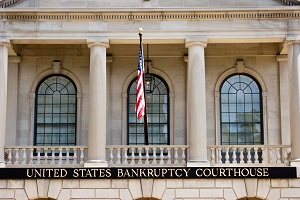
What Exactly Is A Bankruptcy Adversary Proceeding?
A bankruptcy adversary process may be started by creditors, debtors, or the bankruptcy trustee. You, as the debtor, may file an adversary complaint to wipe out debt in your bankruptcy that typically does not discharge (such as the hardship discharge of student loans), or you may be required to file an adversary to remove a lien from your property. The trustee may file an adversary if they want to reverse a fraudulent transfer or recover an asset, and a creditor will file an adversary if they believe their debt should be excluded from your bankruptcy or, alternatively, that your discharge is denied in its entirety. In all of these situations, there must be grounds to file an adversary proceeding, and the court will consider the facts and evidence of the complaint to determine if the adversary should be granted.
The Proceeding Could Have A Number Of Different Causes.
The most frequent reasons for an adversary proceeding are as follows:
● To recover funds or property
● To determine the size or legality of a lien
● To object to a discharge or to have one revoked
● To revoke a repayment plan confirmation order
● To determine a non-dischargeable debt is dischargeable
You can typically have your bankruptcy attorney represent you in adversary proceedings. Since they are familiar with the particulars of your case, your bankruptcy attorney will be prepared to represent you in the adversarial proceedings.
If a creditor initiates an adversarial process against you, you will receive a summons from the court clerk informing you of the complaint. The adversarial action may be resolved through negotiations between the debtor and the creditor or by a judge’s decision following a trial.
The Time To Select A Bankruptcy Attorney Is Right Now.
Even if there are no objections to your bankruptcy, it might still be challenging. It is always in your best interests to speak with an experienced bankruptcy attorney before declaring bankruptcy to make sure you meet all requirements for the type of bankruptcy you’re considering, that your paperwork is filed correctly and that you get the most debt relief possible. To speak with an experienced lawyer about your bankruptcy, please call Winterbotham Parham Teeple, a PC at 800.400.9000.



